Godzilla: All the Movies Ranked
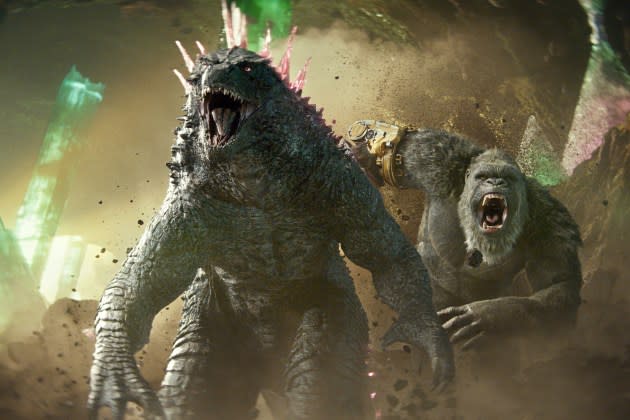
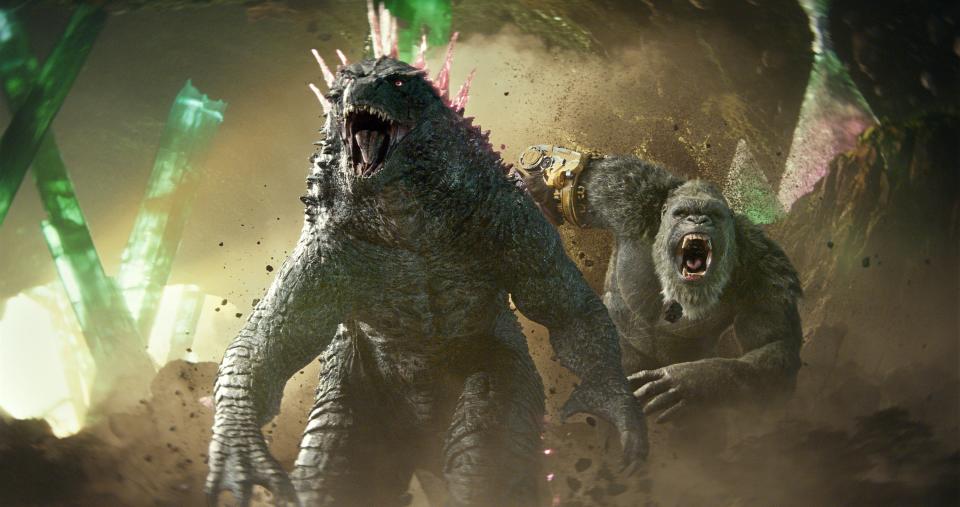
He’s been dissolved at the bottom of the ocean, frozen solid in an iceberg, blown up in a volcano, disintegrated in an atomic meltdown, and killed by missiles on the Brooklyn Bridge, but thanks to the millions of fans who love him, Godzilla will never die. Japan’s biggest star returns in “Godzilla x Kong: The New Empire,” which pairs the towering titan and his hairy rival for a third time.
More from Variety
How Dan Stevens Became Hollywood's Go-To Guy for, Well, Anything
China Box Office: 'The Boy and the Heron' Reaches $93 Million After Second Weekend
Like many long-running franchises, the Godzilla series has gone through a number of distinct phases since its introduction. The first phase, which covers the 15 titles released between 1954 and 1975, is commonly known by fans as the Showa era. These kaiju films (kaiju is the Japanese term for giant monster) are marked by their dramatic shift in tone, from the somber and haunting original to the wonderfully ludicrous “Godzilla vs. Hedorah.”
The second phase is often referred to as the Heisei era, and it includes the seven titles released between 1984 and 1995. These Godzilla films feature a greater sense of narrative continuity, and they ask complex philosophical questions about science and humanity. The third phase is the Millennium era, which covers the six titles released between 1999 and 2004. The majority of these Godzilla films are self-contained stories, much like an anthology series. There have also been a number of standalone reboots, both Japanese and American, that put their own unique spin on the character, as well as the current MonsterVerse saga, which launched in 2014 with Gareth Edwards’ stylish reboot and continues with Adam Wingard’s “Godzilla x Kong: The New Empire.”
To help you program the ultimate monster marathon, here’s our Godzilla movie ranking, listed from wretched worst to bestial best. Long live the lizard king!
35. All Monsters Attack (1969)
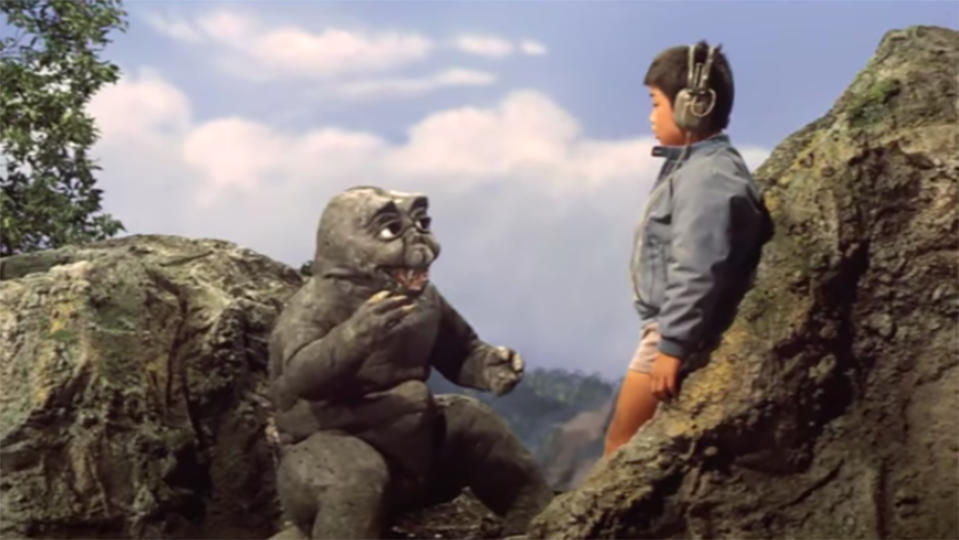
The atrocious tenth film in the series focuses on a bullied boy who escapes from his depressing existence by dreaming that he and Godzilla’s moronic son Minilla are playmates on Monster Island. Although helmed by visionary filmmaker Ishiro Honda, who directed many of the best Godzilla films, “All Monsters Attack” is widely regarded as the worst of the worst, and for good reason. Due to budgetary problems, most of the action is comprised of recycled footage from previous Godzilla movies, and the original material looks like it was shot in a single weekend using whatever old monster costumes were on hand. Awful in every way, the American version adds insult to injury by dubbing the childlike Minilla with a deep male voice that sounds oddly like Mr. Ed, the talking horse.
34. Godzilla vs. Megalon (1973)
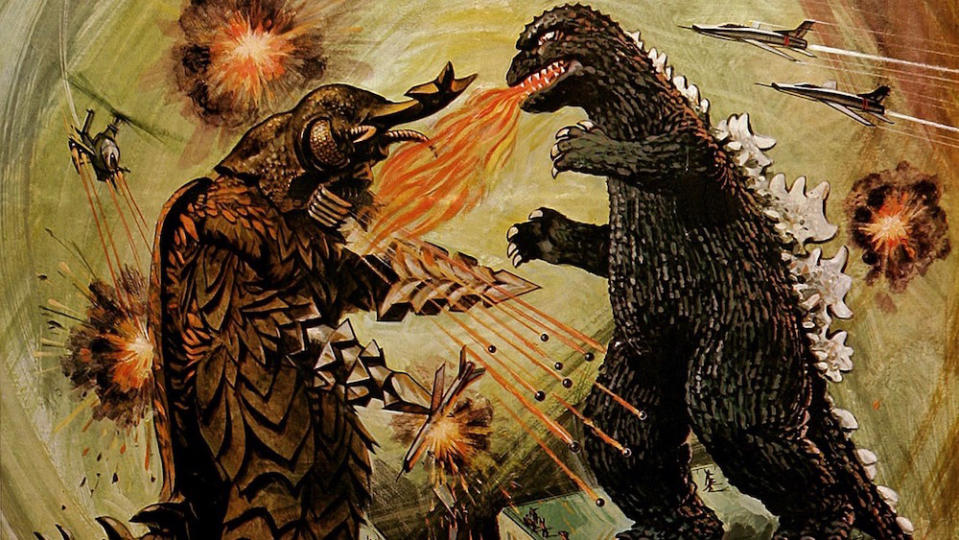
Angered by mankind’s seemingly endless appetite for subterranean nuclear testing (seriously, have these tests ever worked out well for anyone?), an underwater civilization known as Seatopia sends a giant electrified beetle named Megalon up to the surface to stop all the racket. Naturally, Godzilla and his new robotic pal Jet Jaguar defend humanity by throwing foam boulders at the oversized insect. Visually speaking, this unlucky 13th film in the franchise is a drab and gloomy affair, and features some of the dullest monster fighting in the entire series. Much of the blame can be placed on Megalon, who emerges as one of the least charismatic enemies in Godzilla history.
33. Son of Godzilla (1967)
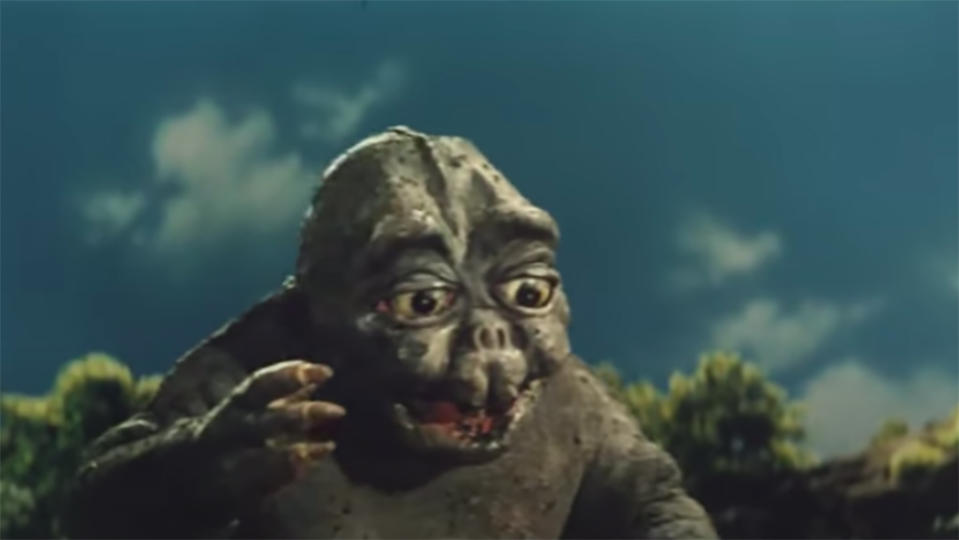
Top secret weather control experiments on a tropical island lead to the creation of humungous praying mantises, and only Godzilla and his dopey offspring Minilla can set things right again. Lackluster in all respects, this amateurish eighth entry was directed by Jun Fukuda, the man responsible for some of the silliest – and sloppiest – movies in the franchise. Like a kaiju version of “The Great Santini,” the film portrays Godzilla as a callous and abusive father to his disappointing son, whose creature costume resembles a moldy-looking Pillsbury Doughboy.
32. Godzilla (1998)
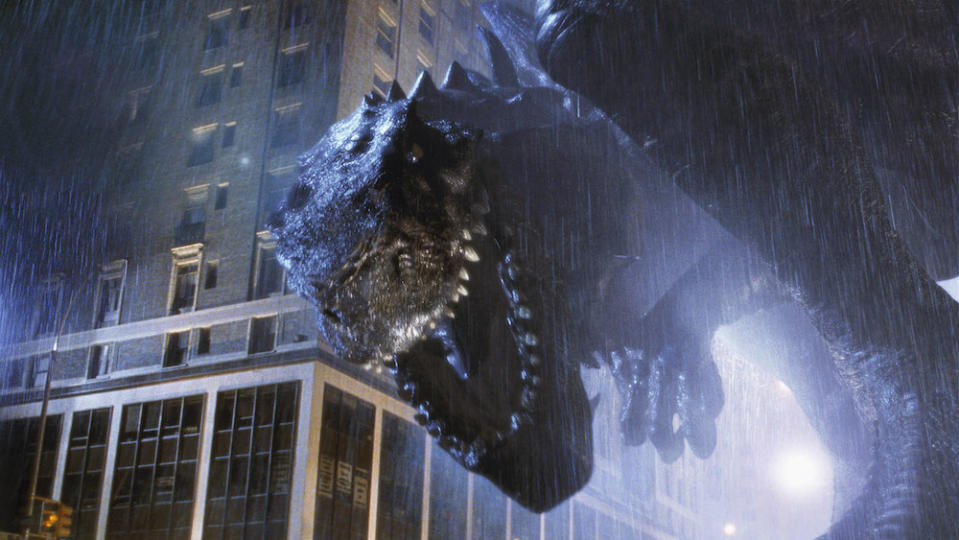
This notoriously misguided American reboot appears to have been crafted by filmmakers with little appreciation for what made Godzilla one of cinema’s greatest icons in the first place. Rather than a towering behemoth whose lumbering gait signals the inexorable approach of death and destruction, here we get a scampering, chicken-legged dinosaur who spends most of the movie fleeing from his enemies like a cat running away from a vacuum cleaner. Factor in the film’s leaden humor, bloated running time, and Matthew Broderick’s lifeless performance, and it’s easy to see why this 23rd Godzilla film is loathed by hardcore kaiju fans.
31. Godzilla Raids Again (1955)
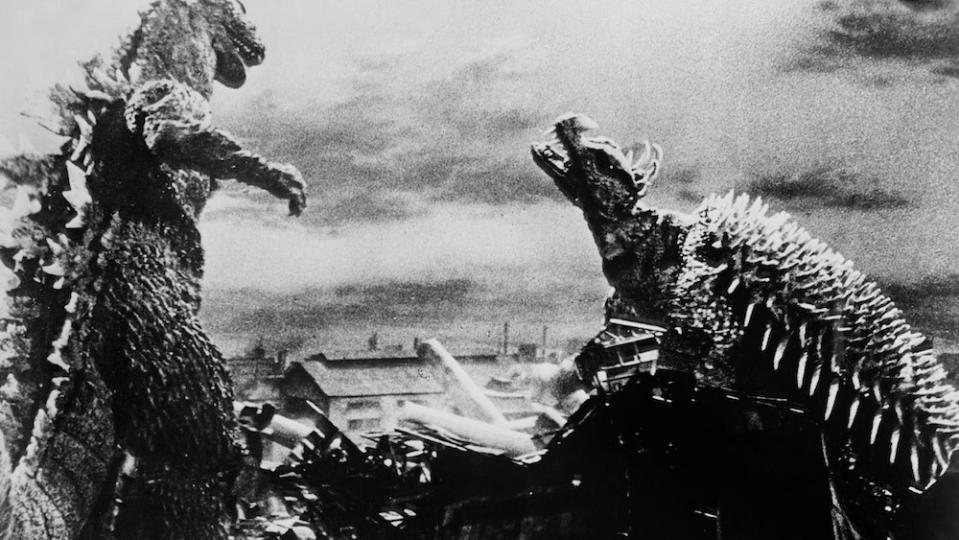
Notable only for introducing Godzilla’s dog-like adversary Anguirus, who would go on to become one of the most beloved beasts in the series, this rushed production is marred by awkward direction, threadbare special effects, and an interminably slow and meandering second half that dispenses with monster fights in favor of pointless human drama.
30. Godzilla 2000 (1999)
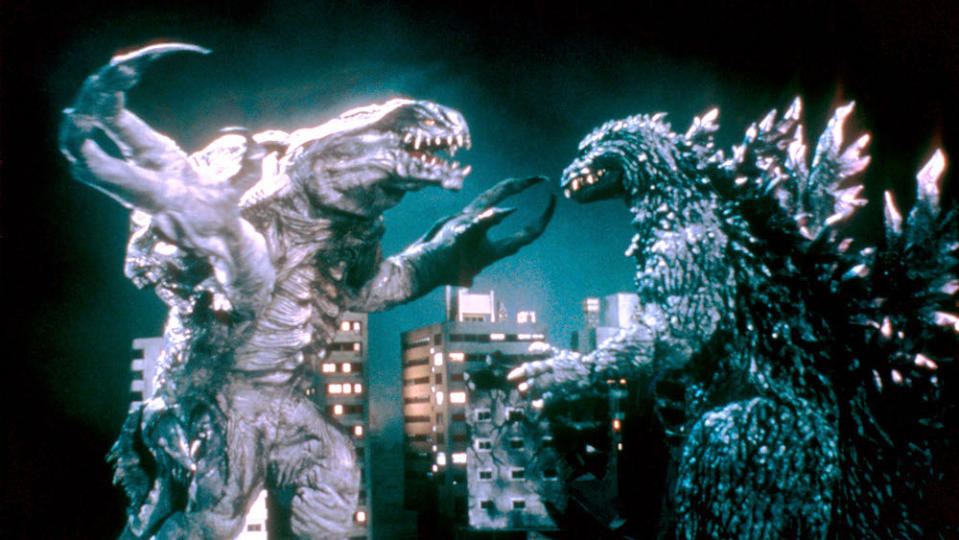
The first film of the series’ newfangled Millennium era, this largely forgettable entry ignores all previous installments and functions as a direct sequel to the original movie. This time, Godzilla battles a UFO that eventually transforms into a lethargic baddie named Orga, whose oversized claws and ungainly body looks suspiciously like the Rancor monster from “Return of the Jedi.” Although the story’s human subplots are better handled than usual this time, “Godzilla 2000” contains only a handful of memorable scenes, making it one of the more skippable titles in the franchise.
29. Godzilla vs. SpaceGodzilla (1994)
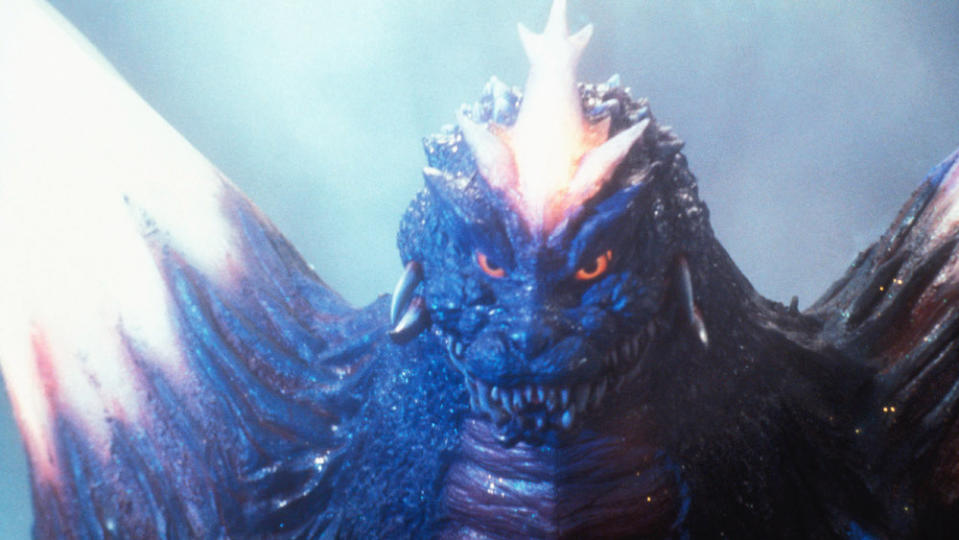
When Mothra accidentally exposes a few of Godzilla’s skin cells to energy from a black hole, a bizarre new creature nicknamed SpaceGodzilla is born and quickly begins terrorizing Earth. Although the idea of Godzilla battling an evil doppelganger is ripe with possibility, this 21st entry does little to distinguish itself and often feels like a retread of familiar moments from better movies. Admittedly, SpaceGodzilla looks extremely cool with massive glowing crystals protruding from his back and shoulders, but his powers are frustratingly random and the movie’s storyline is a bit of a mess. An appearance by the robotic Moguera, first introduced in Toho’s 1957 sci-fi thriller “The Mysterians,” does little to elevate the tired material.
28. Godzilla vs. Mechagodzilla II (1993)
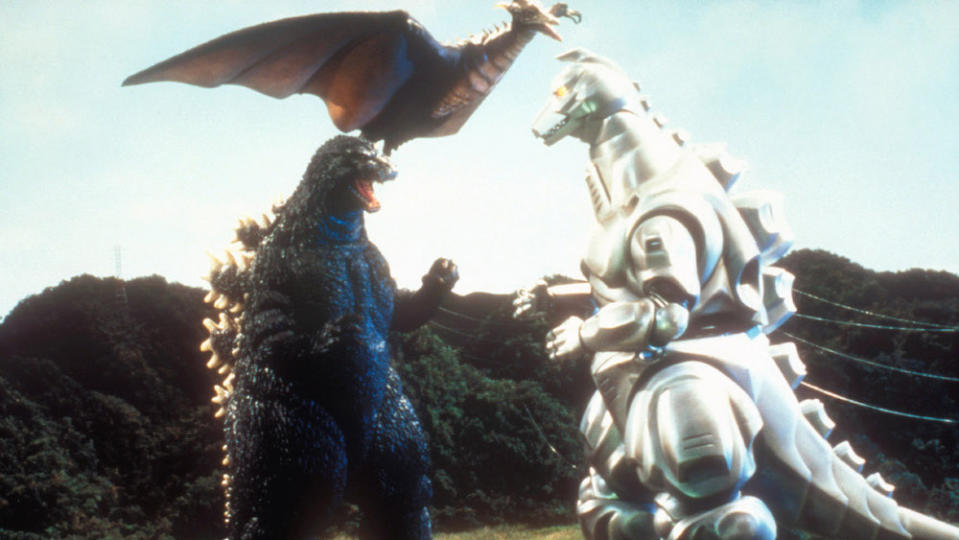
When military scientists create a newly improved Mechagodzilla using the remains of the recently defeated Mecha-King Ghidorah, they think they’ve finally found a way to kill Godzilla once and for all. Meanwhile, in a possible nod to “Kramer vs. Kramer,” Godzilla and Rodan duke it out over custody of a recently discovered Baby Godzilla. Although energetically directed by Takao Okawara, this 20th Godzilla film feels a bit old hat. Part of the problem is that with so many excellent Mechagodzilla movies in the series to choose from, this one just doesn’t seem that special. Other than Mechagodzilla’s beefed-up torso, which makes him look a steroid-enhanced gym rat, there’s not a lot that’s new here.
27. Godzilla vs. Gigan (1972)
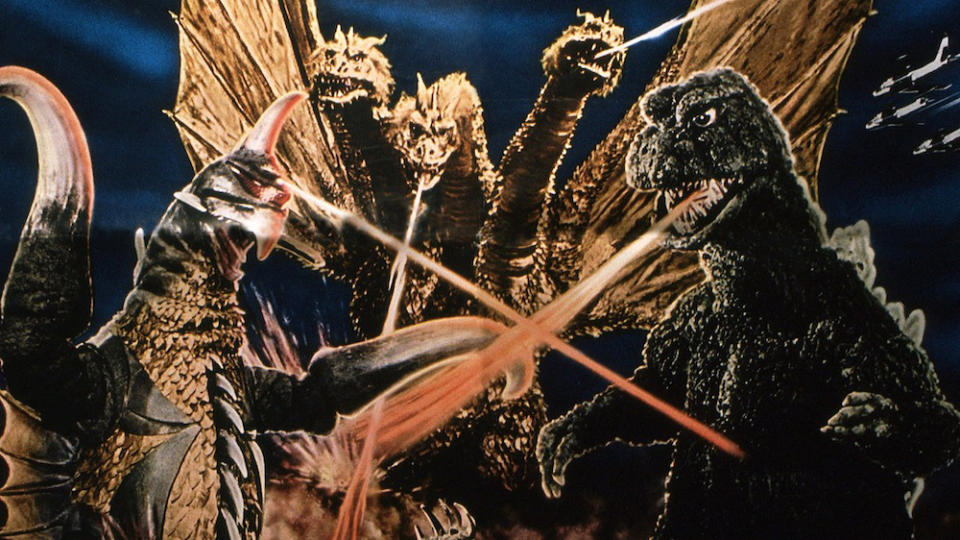
With his red cyclopean eye, metallic jai alai scoop hands, razor-sharp beak, and dorsal-finned back, the giant alien cyborg named Gigan is one of Toho’s most impressively designed monsters; and that’s before his secret buzzsaw belly-blades are revealed in all their gory glory. Although the film’s plot isn’t quite as inventive, that doesn’t mean there aren’t some genuine pleasures to be had here. In particular, setting the final battle at a monster-themed amusement park complete with a Godzilla-shaped building that fires lasers from its mouth is a welcome touch, as are the grotesque alien cockroaches who set the absurd story in motion.
26. Ebirah, Horror of the Deep (1966)
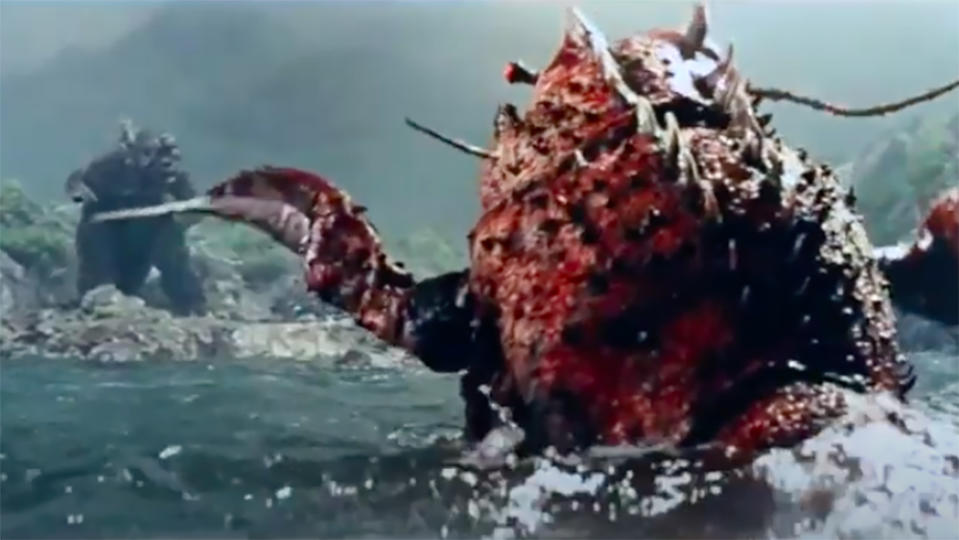
When a young man and his two friends find themselves shipwrecked on a remote island while searching for a lost brother, they encounter terrorists, enslaved natives, and a ginormous lobster named Ebirah. In the process of avoiding capture, they accidentally awaken Godzilla, who apparently took a disco nap on the island after the events of “Invasion of Astro-Monster.” Less concerned with global cataclysm and world domination, this fun entry in the Godzilla series works well as a standalone story. Although Ebirah doesn’t have many unique abilities – other than being a crustacean the size of a battleship – the monster fights are invigorating and well-staged, and the lush island setting provides a refreshing change of scenery from the endless urban destruction that the franchise usually focuses on.
25. Godzilla: Tokyo S.O.S. (2003)
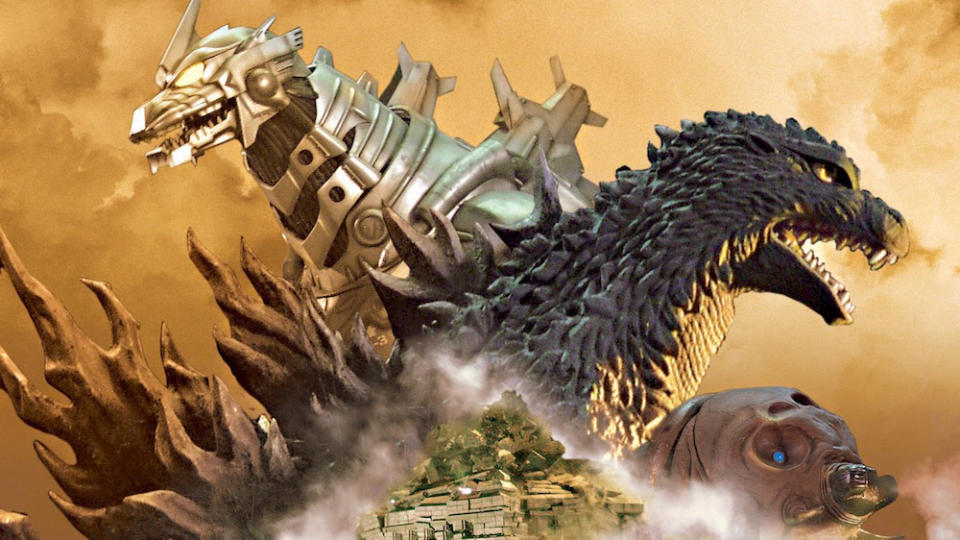
When Mothra’s miniature fairy minions inform the Japanese government that Godzilla will continue to rain destruction upon Japan unless they destroy Mechagodzilla, the country’s stubborn Prime Minister ignores the dire warnings, setting in motion an epic battle between all three super-sized opponents. While the plot won’t win any awards for originality, director Masaaki Tezuka captures some seriously impressive monster fights in this 27th film in the series. Mothra fans, in particular, will find much to love about this installment, which frequently refers back to the giant moth’s 1961 standalone movie. Even Mothra’s silk-shooting larvae are given a chance to shine by trapping Godzilla in an impenetrable cocoon during the climactic battle.
24. Godzilla (2014)
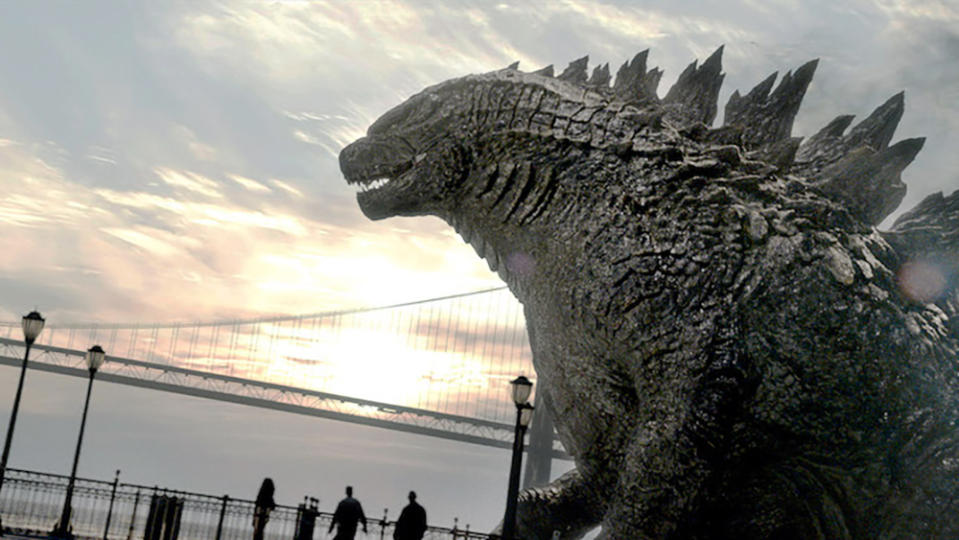
Featuring an intense performance by Bryan Cranston and a striking new creature design for the title character, this bold reimagining of Godzilla was a monster-sized hit for Legendary Pictures. Unfortunately, Cranston barely makes it through the film’s first act, and Godzilla has even less screen time than he does. The camera work is exquisite… when you can actually see it. Much of the film’s second half is so dimly lit and obscured by smoke and fog, it’s honestly difficult to tell what’s happening during the meager number of monster tussles we’re given. Note to future kaiju filmmakers: the Godzilla series is not “The Blair Witch Project.” The audience has to actually see the onscreen action to appreciate it.
23. Godzilla and Mothra: The Battle for Earth (1992)
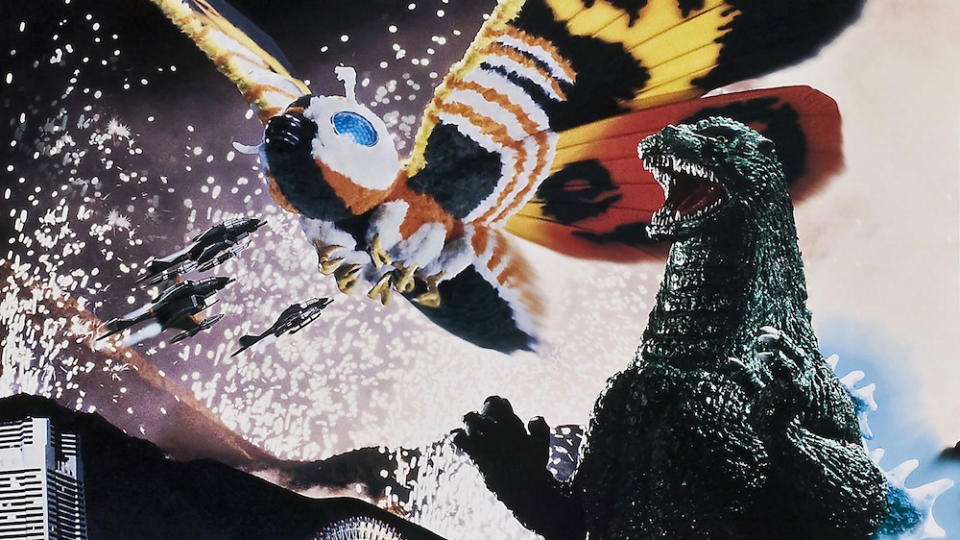
Another big treat for longtime Mothra fans, this 19th entry finds Earth itself declaring war on humanity in the form of Battra, a giant black moth who’s revealed to be the physical embodiment of the planet’s inherent instinct for self-protection. Filled with fantastic imagery and thrilling battle scenes, the film was Mothra’s first appearance on screen in 25 years, and director Takao Okawara provides her with a vibrant new look and some freshly super-charged powers. Although Godzilla is given less to do here than he is in most other installments, the addition of Battra, who acts as a dark twin to Mothra, is an inspired touch that makes up for Godzilla’s relative lack of agency in the movie.
22. Godzilla vs. King Ghidorah (1991)
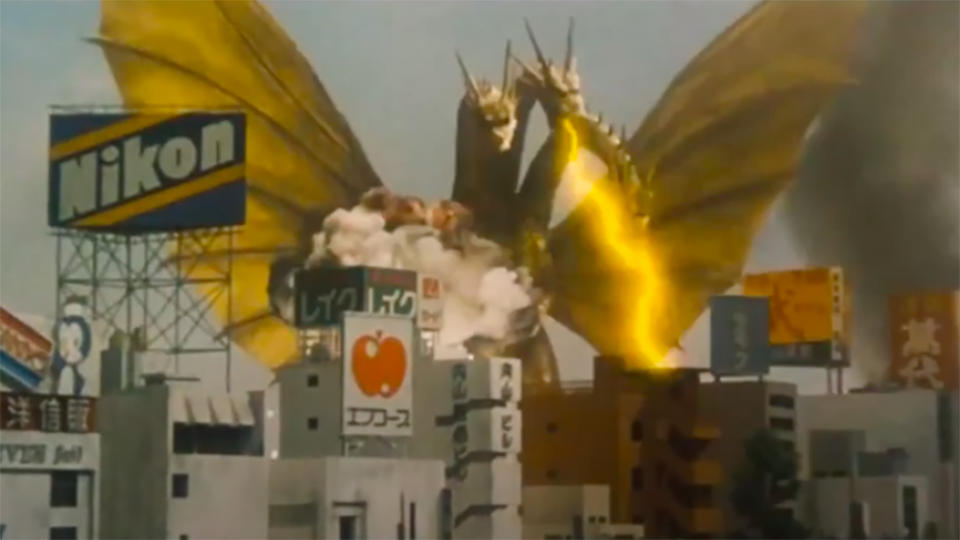
The only Godzilla film to incorporate time travel into its story, this wonderfully weird 18th entry has enough plot to fill a half-dozen movies. In a nutshell, time travelers from the future arrive in the present with a warning that Godzilla will cause an apocalyptic nuclear accident in a few years, and the only way to prevent it is to travel back to World War II and stop him from being created in the first place. But that’s just the tip of the narrative iceberg in this over-the-top extravaganza. None of the film’s time travel rules make any sense whatsoever, but that doesn’t stop this monster mash from being outrageously entertaining.
21. Godzilla vs. Megaguirus (2000)
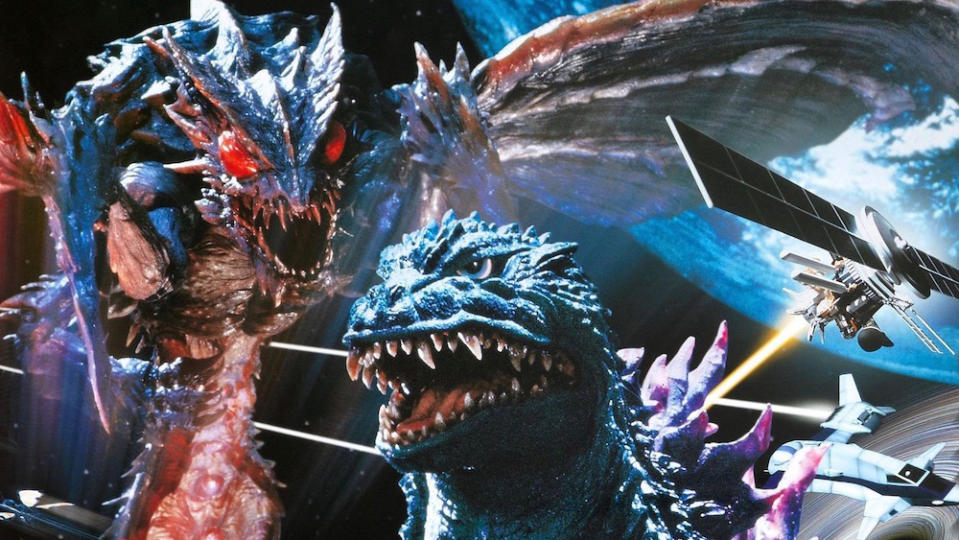
One of the more underrated entries of the Millennium era, this installment ignores all previous Godzilla films and picks up where the 1954 original left off. When Godzilla emerges from his decades-long slumber, Japan unveils a new weapon capable of firing artificial black holes at the rampaging monster. But during a test run, the weapon accidentally opens a dimensional wormhole, and a giant dragonfly pops through just long enough to deposit an egg in our dimension. Before long, dozens of gargantuan insects and their menacing queen attack Godzilla like a swarm of irradiated locusts. Featuring a beautifully designed enemy in Megaguirus, not to mention a storyline that’s surprisingly easy to follow for a change, this 24th Godzilla movie feels like a welcome return to the early days of the series.
20. Godzilla Against Mechagodzilla (2002)
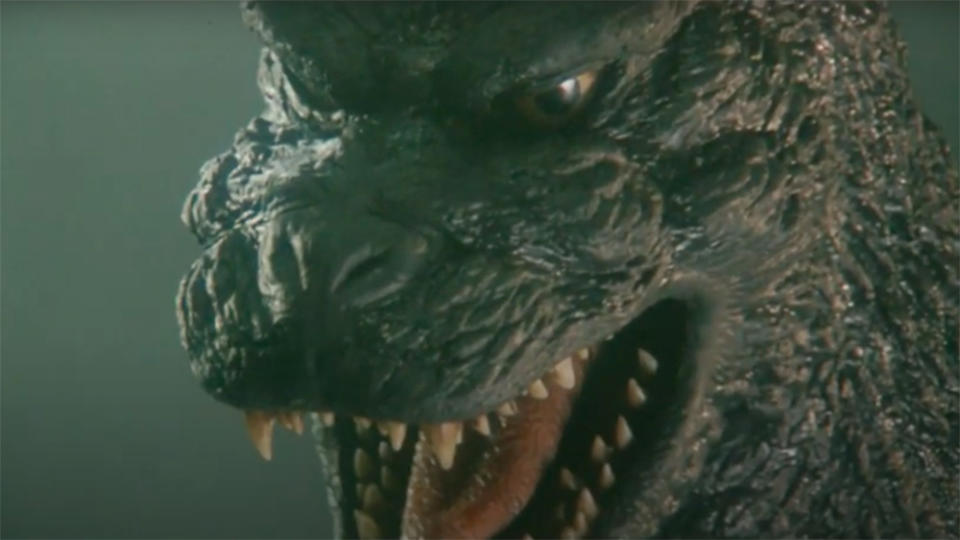
Not to be confused with the similarly titled “Godzilla vs. Mechagodzilla,” this 27th entry plays like a trial run for Guillermo del Toro’s “Pacific Rim,” with a human-piloted robot battling a flesh-and-blood monster for control of the Earth. As the lead pilot who operates the newly designed Mechagodzilla, actress Yumiko Shaku delivers a performance that’s powerful enough to make you wish she appeared in more Godzilla movies, rather than just a cameo role in “Godzilla: Tokyo S.O.S.” Longtime Toho fans will appreciate the callbacks to classic kaiju movies of the past, like the original “Mothra” and “War of the Gargantuas,” but it’s Mechagodzilla’s imposing new look – especially those shoulder mounted cannons and segmented neck structure – that leaves the biggest impression.
19. Godzilla: King of the Monsters (2019)
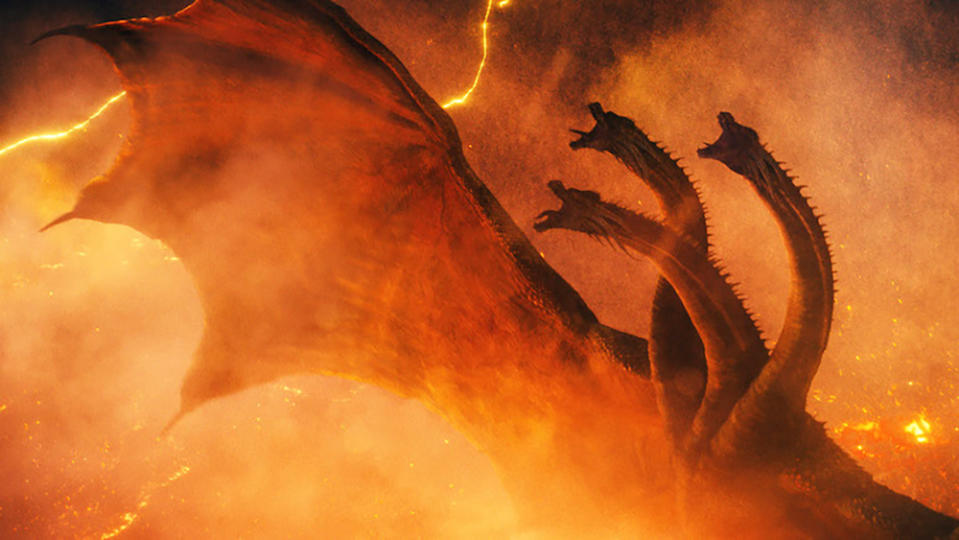
A much-needed course correction after the anemic action of the first MonsterVerse movie, this occasionally dazzling epic features some amazing creature fights, including a sensational aerial battle between Rodan and King Ghidorah. Although the majority of the monster scenes are once again annoyingly obscured by torrential rainstorms and typhoon-level sea surges, the film is an improvement on the previous entry in almost every way. Each of the newly designed monsters is given at least one showstopping moment, making the movie a treat for longtime Godzilla disciples.
18. Godzilla x Kong: The New Empire (2024)
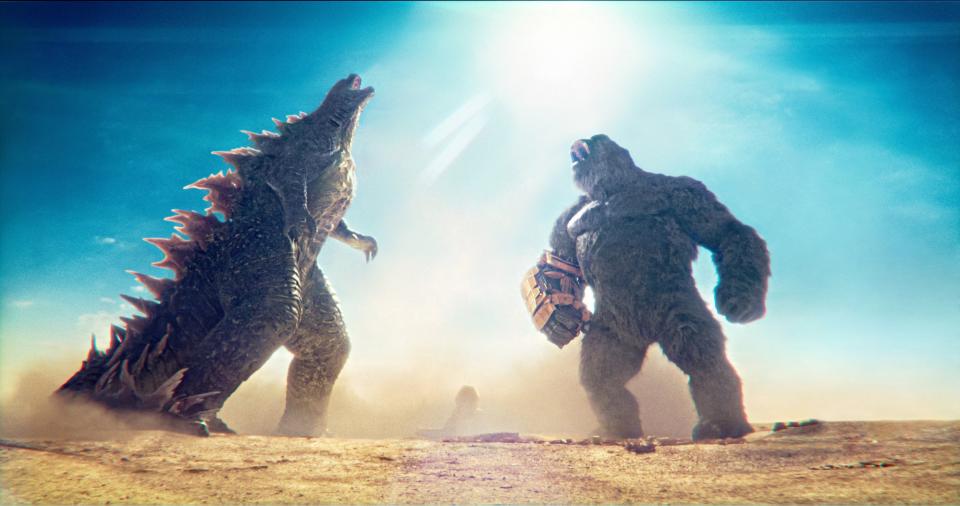
Although Godzilla’s name comes first in the title, the focus is almost entirely on Kong’s journey in this MonsterVerse entry. Much of Godzilla’s screen time is spent absorbing energy in preparation for the climactic fight or napping in Rome’s Colosseum, making him a supporting character here rather than a true co-star. In terms of spectacle, director Adam Wingard swings for the fences, but by going so big, he inadvertently saps the monsters of their intimidating size and scale for long sections of the film. Setting much of the action in the cavernous Hollow Earth makes the Titans look smaller than they actually are. For example, when Kong tussles with a group of giant simians in their underground lair, they basically resemble average size CGI gorillas duking it out, which leaves the movie feeling more like an installment of the Planet of the Apes series than a kaiju film. As for the human cast, Rebecca Hall and Brian Tyree Henry may as well be off-screen narrators explaining the pedestrian plot every few minutes in extended passages of dry exposition. On the plus side, Kong is a remarkably expressive character, his new Power Glove is great, and the psychedelic color palette makes the film look like a ’70s prog rock album cover come to life, especially during an inventive anti-gravity action sequence.
17. King Kong vs. Godzilla (1962)
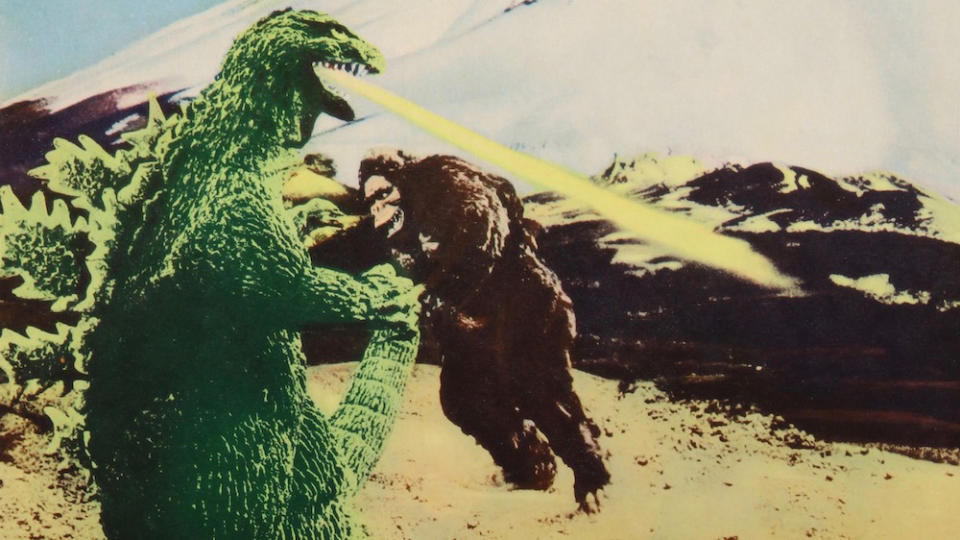
The first film in the series to be shot in color, this third entry basically embodies the phrase “so bad it’s good.” Freed from the icy tomb he was trapped in at the end of the previous movie, Godzilla emerges ready to confront King Kong, who’s been transported to Japan by a dastardly drug company. A spectacularly wacky addition to Godzilla history, this glorious grudge match between two of cinema’s best-known monsters is stuffed with corny humor and hilariously cheesy fight scenes. Given a spiffy new make-over by returning director Ishiro Honda, Godzilla’s appearance here is truly awesome. Kong, however, doesn’t fare as well. In fact, he looks like someone sculpted a monkey’s face out of mashed potatoes and stuck it on a filthy shag carpet. But that’s just one of the many charming aspects of this bonkers installment.
16. Destroy All Monsters (1968)
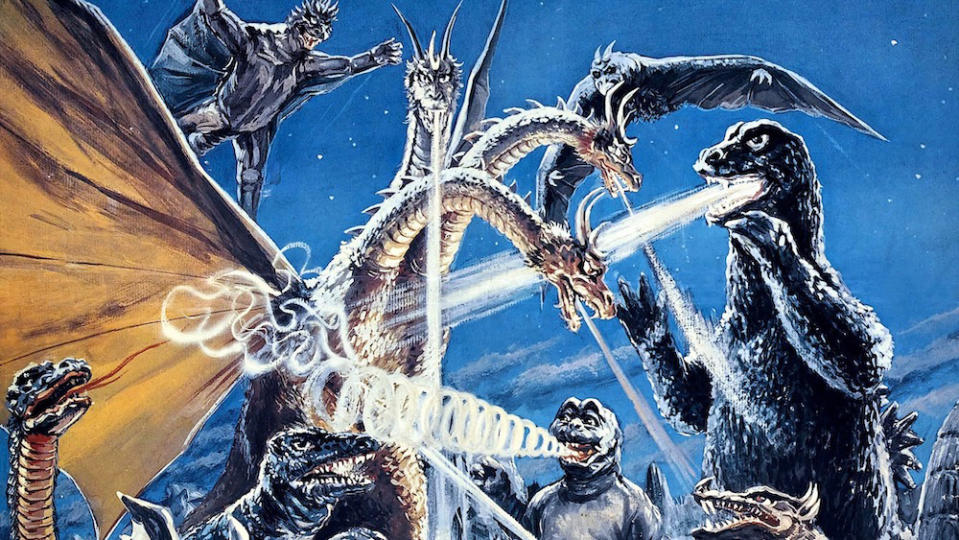
When female aliens from planet Kilaak release all of Earth’s kaiju from their confines on Monster Island, it’s up to the United Nations to step in and regain control of the destructive giants. The cinematic equivalent of an all-star WWE pay-per-view event, this madcap monster melee pulls out all the stops when it comes to action and excitement. In addition to familiar creatures like Godzilla, Rodan, Mothra, and King Ghidorah, the movie also includes a number of lesser-known behemoths like leaping lizard Gorosaurus, slithering sea serpent Mandra, and savage spider Kumonga. It’s a no-holds-barred monsterpalooza!
15. Godzilla, Mothra and King Ghidorah: Giant Monsters All-Out Attack (2001)
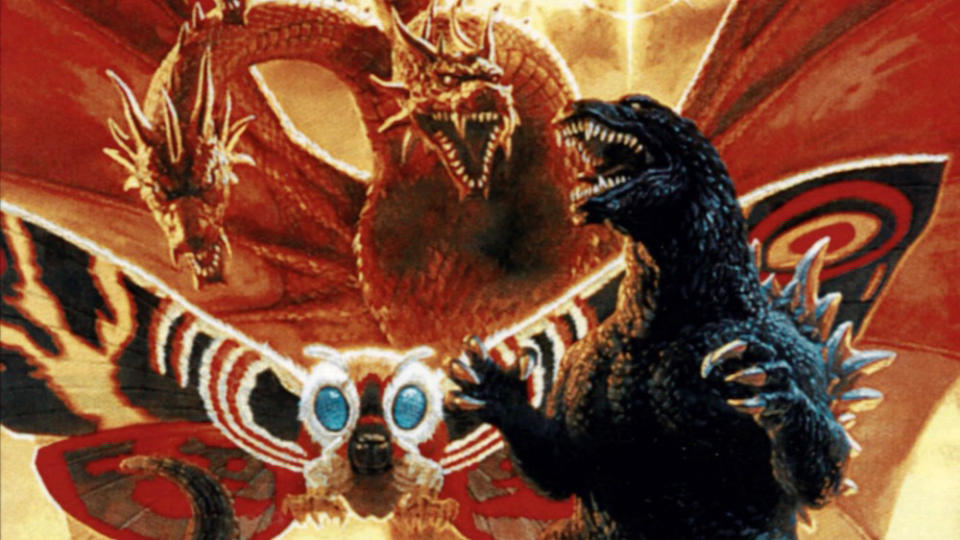
Often referred to simply as “GMK,” this endearing homage to classic Godzilla movies of the past is a fine entry point for new viewers or returning fans who haven’t kept up with the series in a while. Directed by Shûsuke Kaneko, who brilliantly rebooted the moribund Gamera series in 1995, the film doesn’t shy away from showing viewers the painful human cost of the non-stop monster battles that have plagued Earth for decades. Best of all, Godzilla is reimagined here as a terrifying threat for the first time in years. With his disturbing all-white eyes and demonic snarl, the Big G has rarely seemed more frightening.
14. Invasion of Astro-Monster (1965)
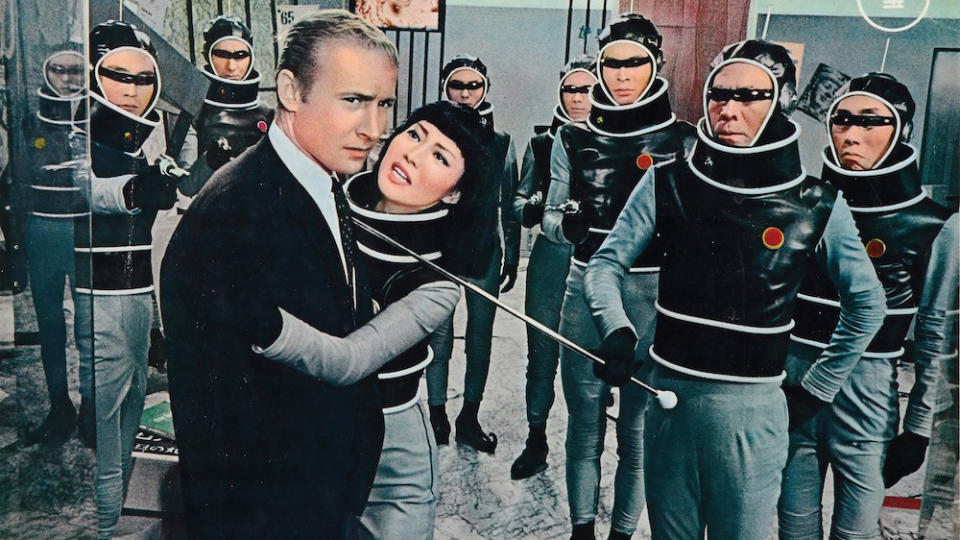
Here’s a valuable tip for you. Never, under any circumstances, trust a race of sunglass-wearing aliens from Planet X when they arrive on Earth asking to “borrow” Godzilla and Rodan for a little while. One of the all-time craziest sci-fi themed entries in the franchise, this sixth Godzilla movie has a lot going for it, especially the welcome presence of American actor Nick Adams, playing a cocky astronaut who shows the pleather-clad extraterrestrials who’s boss. Adams was no stranger to kaiju movies, having costarred in Toho’s giant monster pic “Frankenstein Conquers the World” shortly before appearing in “Invasion of Astro-Monster.”
13. Godzilla: Final Wars (2004)
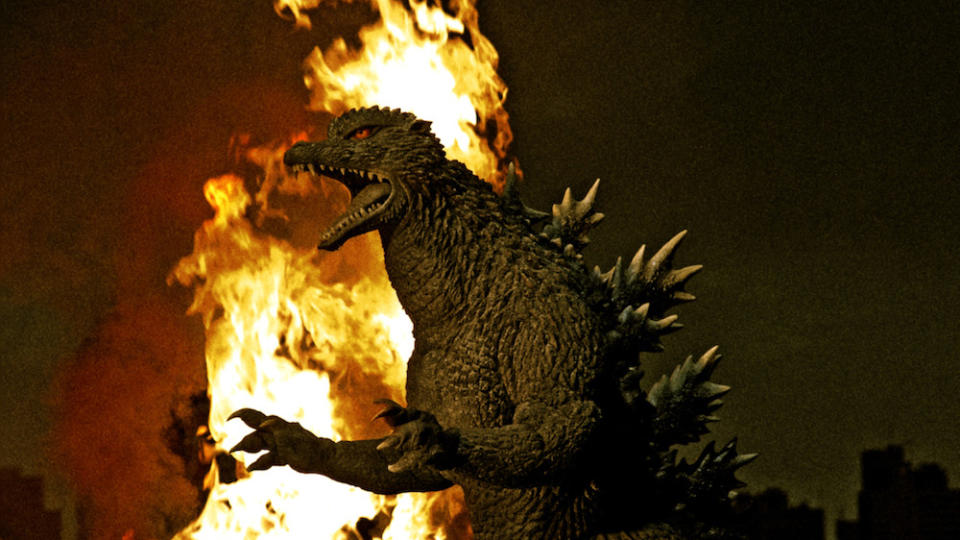
This divisive 50th anniversary entry is admittedly overlong and overstuffed, but that’s what makes it so audacious. Tasked with wrapping up Godzilla’s sci-fi heavy Millennium era, director Ryûhei Kitamura throws everything at the screen in an effort to wow audiences and reward lifelong kaiju fans. The result is a wildly entertaining yarn that combines Matrix-style martial arts with loving references to classic movies in the Godzilla franchise. Second-string monsters like Gigan, King Caesar, and Ebirah get stunning upgrades, and the film earns extra points for the way that Godzilla nonchalantly demolishes his American cousin, rebranded here as Zilla.
12. Ghidorah, the Three-Headed Monster (1964)
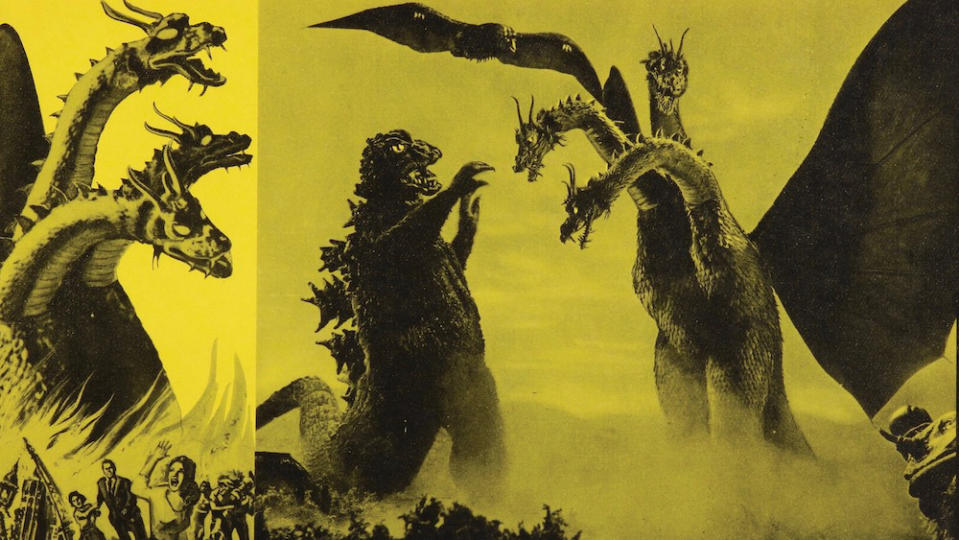
Effortlessly blending serious action and jovial humor, the splendid fifth film in the series did more than just introduce the world to the shimmering gold-scaled dragon named Ghidorah. It actually managed to transform Godzilla from villain to hero for the very first time. Combining ancient prophecies, political conspiracies, and cosmic mumbo jumbo, the movie’s bombastic plot barely holds together, but who cares when there’s this much magic on screen? A prime example of the golden age of kaiju moviemaking, the film’s most dynamic character is, naturally, Godzilla’s magnificent three-headed adversary; a miraculously designed monster whose weird chittering vocal noises nicely compliment his opponent’s iconic roar.
11. Godzilla vs. Hedorah (1971)
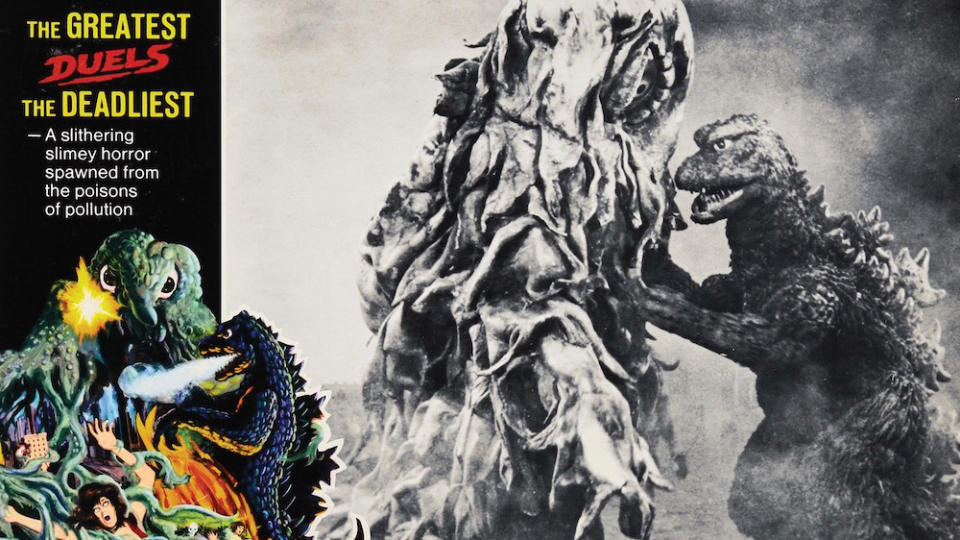
When an alien microbe hitches a ride on a meteor and plummets to Earth, it develops a taste for pollution and quickly becomes a towering toxic sludge monster named Hedorah. Godzilla, now a full-fledged defender of humanity, leaps to mankind’s defense and battles the sentient trash heap, whose smell alone can kill people. Many fans might wonder how this indescribably strange 11th film in the franchise managed to rank so high on this list. Well, the answer is simple: there’s literally no other Godzilla movie quite like this surreal curiosity piece. Granted complete creative control, first-time director Yoshimatsu Banno fashions a trippy, nightmarish, and altogether groovy ecological horror film that’s part cautionary tale, part insane kiddie flick. Although Hedorah occasionally resembles a 200-foot pile of dirty laundry, there’s something undeniably compelling about his disgusting design. A genuine camp classic.
10. The Return of Godzilla (1984)
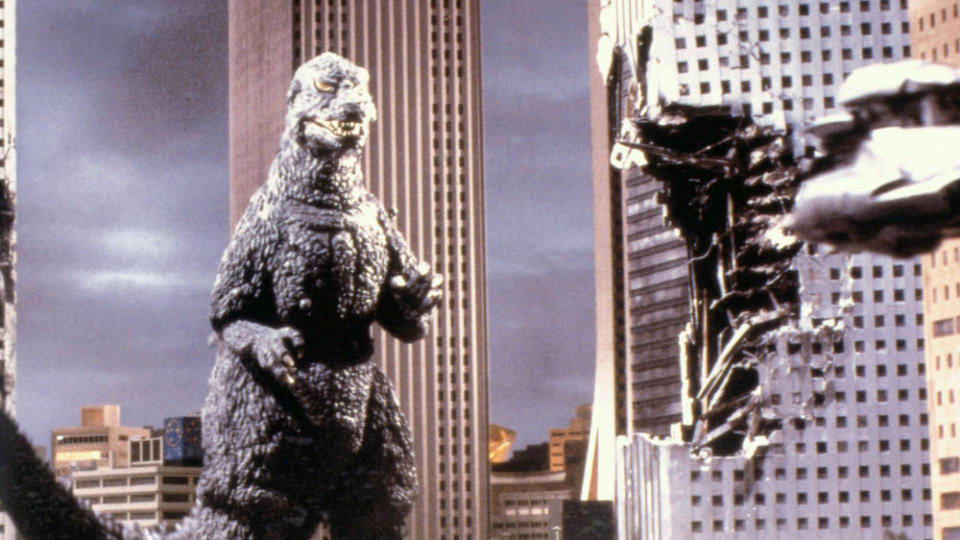
After a nine year absence from the big screen, Godzilla roared back into theaters again with this triumphant reboot that blends a disaster movie scenario with a classic kaiju epic. Featuring impressive special effects and gorgeous production values that make it look like a major Hollywood studio film, the first entry in Godzilla’s Heisei era is more grounded than most giant monster movies, which works to its advantage. Godzilla’s breathtaking new look, especially his re-designed head, set the stage for all the future Heisei installments that followed.
9. Godzilla vs. Kong (2021)
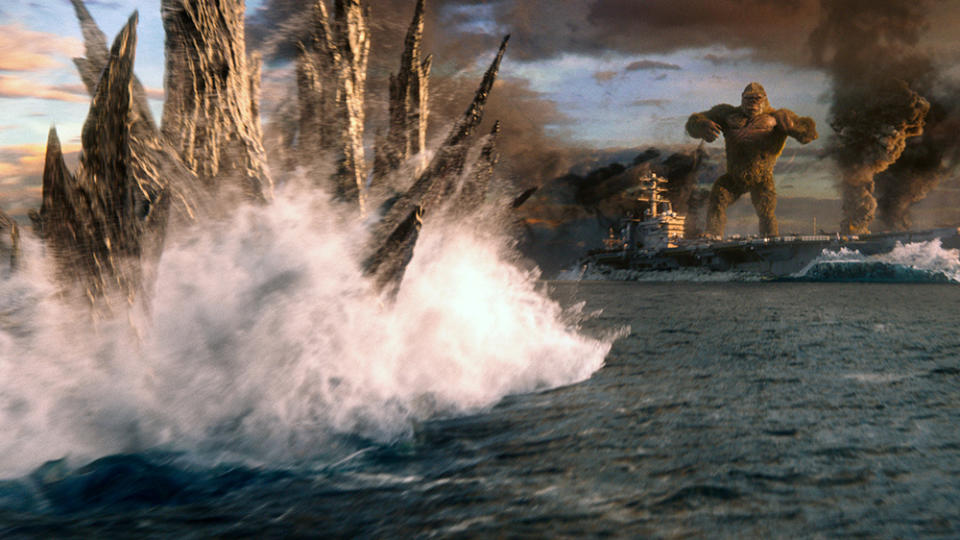
Restoring a sense of joy and wonder to the franchise after the dour first two entries in the MonsterVerse saga, this fast-paced kaiju smorgasbord brims with affectionate tributes to everything from Edgar Rice Burroughs’ pulpy Hollow Earth novels to Toho Studios’ 1967 classic “King Kong Escapes.” Lighter in tone than the three previous movies in this cycle, the story finds the secretive Monarch organization desperately trying to determine why Godzilla has reverted to his old destructive ways. Globetrotting from one colorful continent to the next, the film includes multiple subplots that keep the action moving at a fever pitch, and the jaw-dropping combat scenes between the hulking and immovable Godzilla and the lithe and graceful Kong are some of the best in the series. And then there’s the newly upgraded Mechagodzilla, whose deadly power and threatening design would give Optimus Prime nightmares. The final three-way battle in Hong Kong is a beautifully choreographed skirmish that’s shot to resemble the original Toho Godzilla movies, which gives this installment a massive leg up on “Godzilla x Kong: The New Empire” and its oddly-scaled monster fights.
8. Godzilla vs. Biollante (1989)
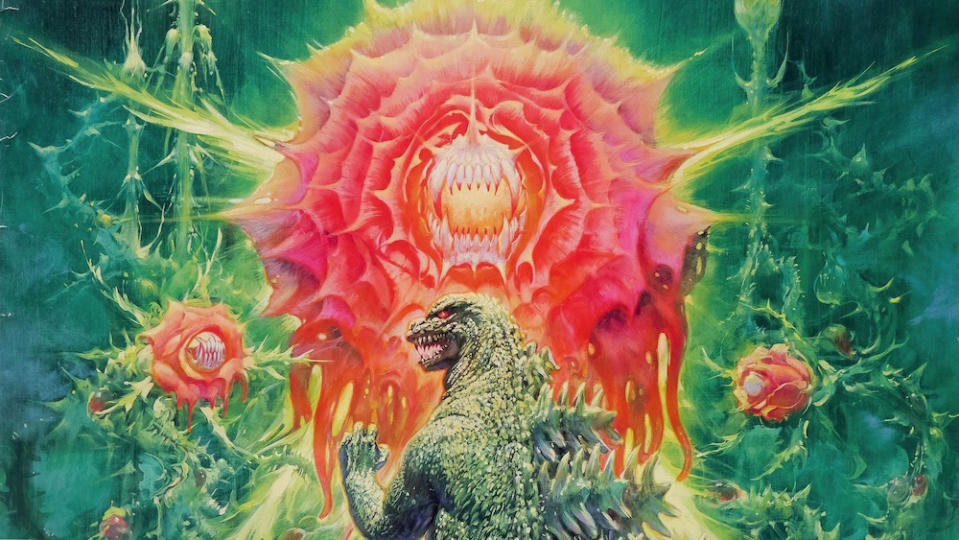
Five years after the down-to-earth action of “The Return of Godzilla,” Toho followed things up with the most dreamlike movie in the franchise’s history. The film’s fascinating storyline involves a grief-stricken genetic scientist who creates a monstrous mutation by combining the cells of his deceased daughter with plant DNA and a few of Godzilla’s chromosomes. The horrifying result looks like something David Cronenberg might’ve come up with had he been tapped to direct a kaiju pic. This hugely original entry in the series asks complex philosophical questions about identity and medical ethics. In fact, you could actually remove Godzilla from the plot entirely and it would still be a memorable sci-fi film. Of course, that’s not to say there isn’t plenty of monster-on-monster mayhem on display. Biollante goes through several bizarre evolutionary stages, each one gooier and nastier than the last.
7. Godzilla vs. Mechagodzilla (1974)
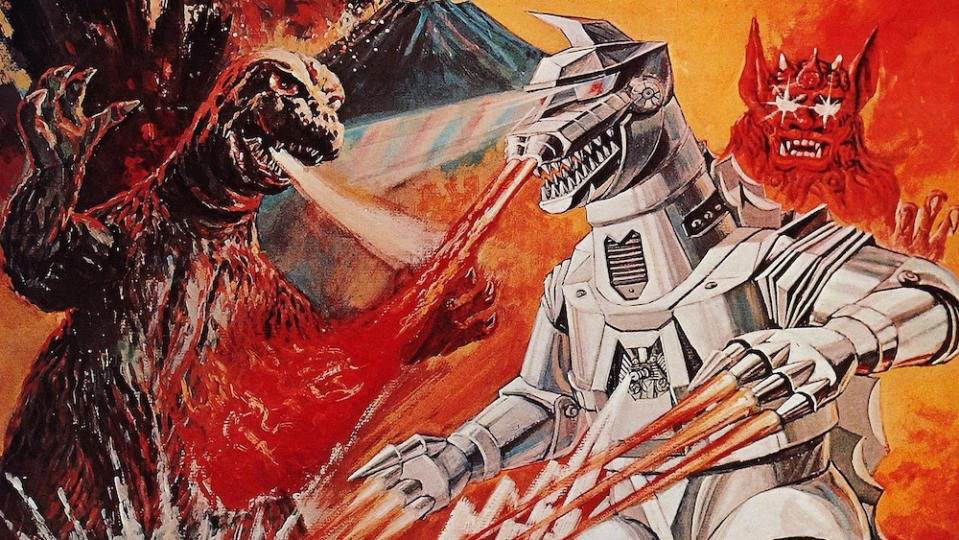
Second in popularity only to Godzilla himself, Mechagodzilla was introduced to audiences in this wildly imaginative tale, the penultimate entry of the original Showa era. The robotic giant is given the series’ all-time best entrance, as his scaly outer covering dissolves away to reveal a gleaming metallic understructure hidden beneath it. Occasionally resembling a ‘70s James Bond spoof, the film is jam-packed with everything from new monsters – like an adorably fuzzy lion creature named King Caesar – to psychic visions and ape-faced alien invaders. But it’s Mechagodzilla who emerges as the film’s true MVP. Like a mammoth Inspector Gadget, this tin-colored titan is equipped with finger missiles, laser-beam eyes, rocket-powered feet, and a swiveling head that generates an impenetrable force field.
6. Terror of Mechagodzilla (1975)
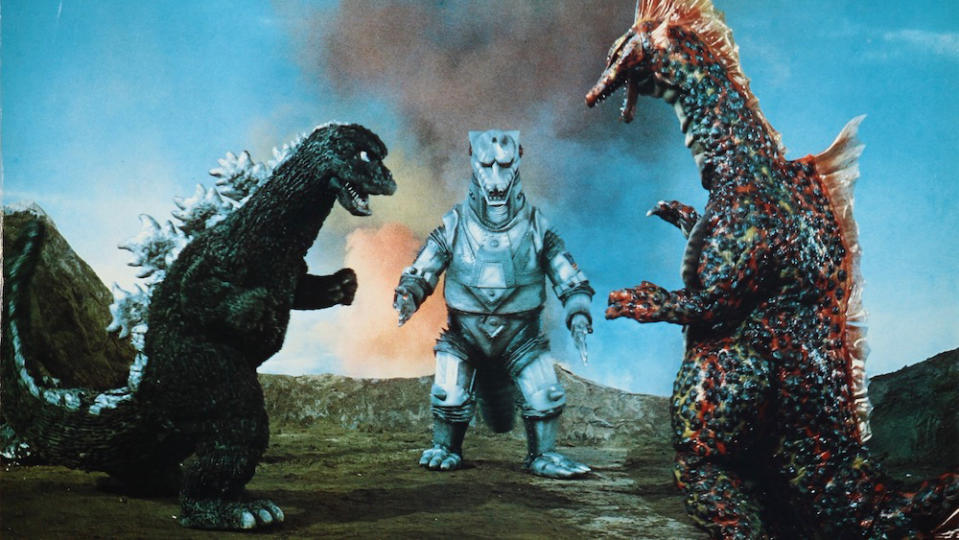
Kaiju auteur Ishiro Honda helmed this gritty follow-up to director Jun Fukuda’s playful “Godzilla vs. Mechagodzilla,” and watching the two movies back to back proves just how much one artist’s vision can differ from another’s, even when their work looks remarkably similar on the surface. Containing many of the same visual elements from Fukuda’s film, Honda’s penchant for turning sci-fi action into real-world metaphor is on full display here. The human drama presented in “Terror of Mechagodzilla” is dark and thought-provoking, and set the stage for complex entries like “Godzilla vs. Biollante” that we’d get in the future.
5. Shin Godzilla (2016)
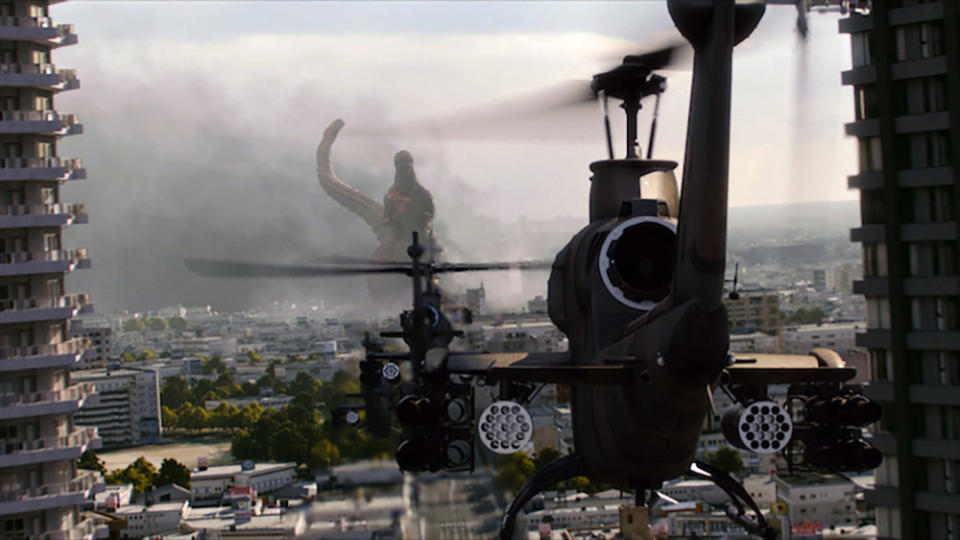
Highly controversial and deeply disturbing, this one-of-a-kind monster movie brilliantly reimagines Godzilla as a terrifying force of chaos and horror, and portrays him in ways that haven’t been seen before, and probably won’t be seen again. Fans were split on whether the movie was a visionary work of genius or an insulting gimmick that barely qualifies as a true Godzilla movie. Although it remains hugely divisive, if you’re willing to go with it, this fearsome film will take you places in the Godzilla universe that you haven’t been before. The story is a complete reboot, ignoring even the original 1954 movie, and it takes serious risks by echoing the tragic tsunami that struck Japan in 2011. It asks what society might look like if Godzilla actually existed, and the answers it provides aren’t comforting. In short, it’s a pitch black modern masterpiece unlike anything else in the kaiju genre.
4. Mothra vs. Godzilla (1964)
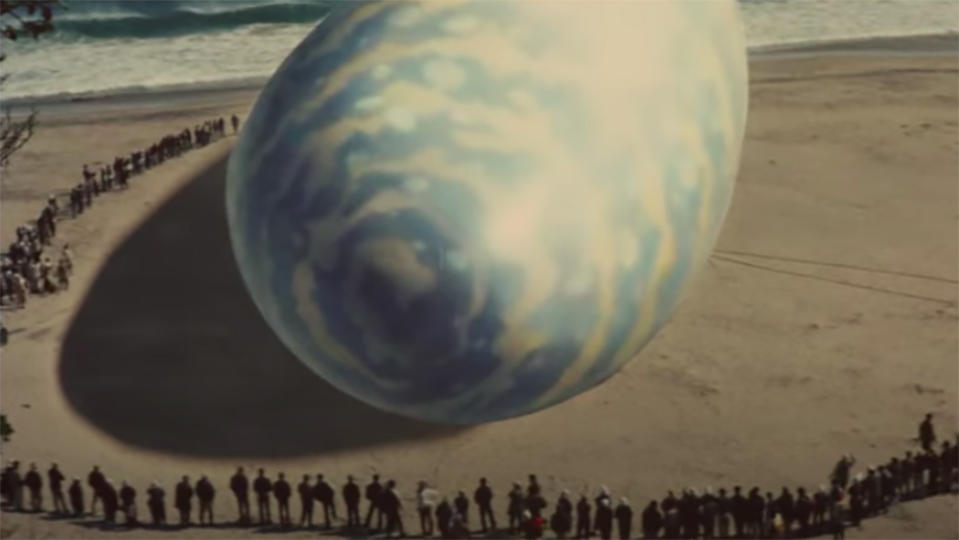
A candy-colored fantasy containing many of the most unforgettable images in Godzilla’s long history, “Mothra vs. Godzilla” exists in a class by itself. In a curious way, this fourth film in the kaiju franchise resembles “Goldfinger,” the third James Bond blockbuster, which was also released in 1964. After all, both movies improved on their predecessors’ formula and set the template for all future entries in the series. Everything about it works perfectly, from composer Akira Ifukube’s devastating score to Eiji Tsuburaya groundbreaking effects to the provocative storyline and the fine lead performances. And tying it all together is Ishiro Honda’s unsurpassed direction.
3. Godzilla vs. Destoroyah (1995)
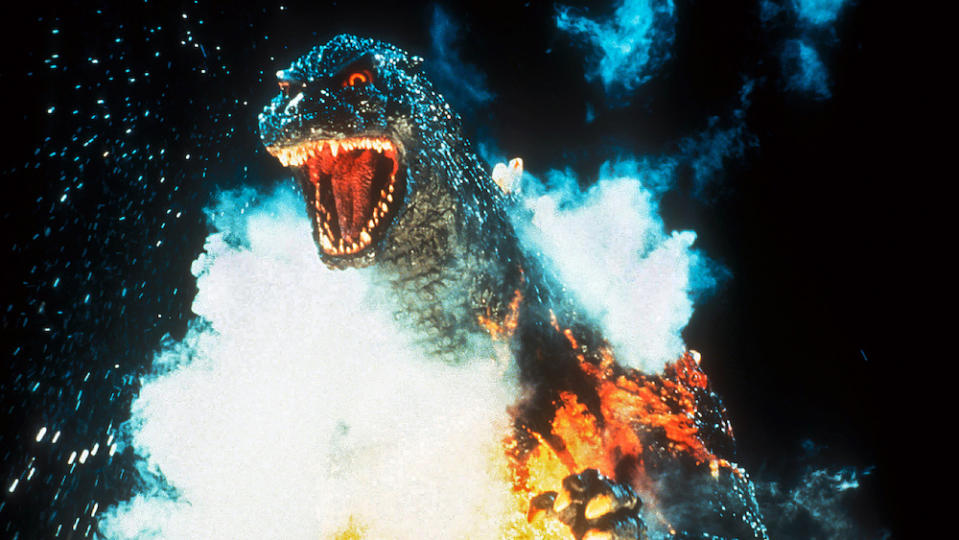
It’s impossible to decide what’s most memorable about this final film of the Heisei era. Is it Godzilla’s stunning new “Burning Godzilla” appearance? Could it be the many clever callbacks and references to the original 1954 film? Or maybe it’s the ghastly design of Destoroyah, one of Big G’s all-time scariest opponents? Or perhaps it’s the fact that Godzilla Jr. finally emerges as a decent character? The truth is, it’s all of those things, plus so much more. But what makes this existential epic truly worthy of classic status is its profoundly emotional ending. For the first time in history, you’ll find yourself sobbing in a Godzilla movie as the final credits roll. Compassionately directed by Takao Okawara, “Godzilla vs. Destoroyah” elevates the kaiju genre to the level of Greek tragedy.
2. Godzilla Minus One (2023)
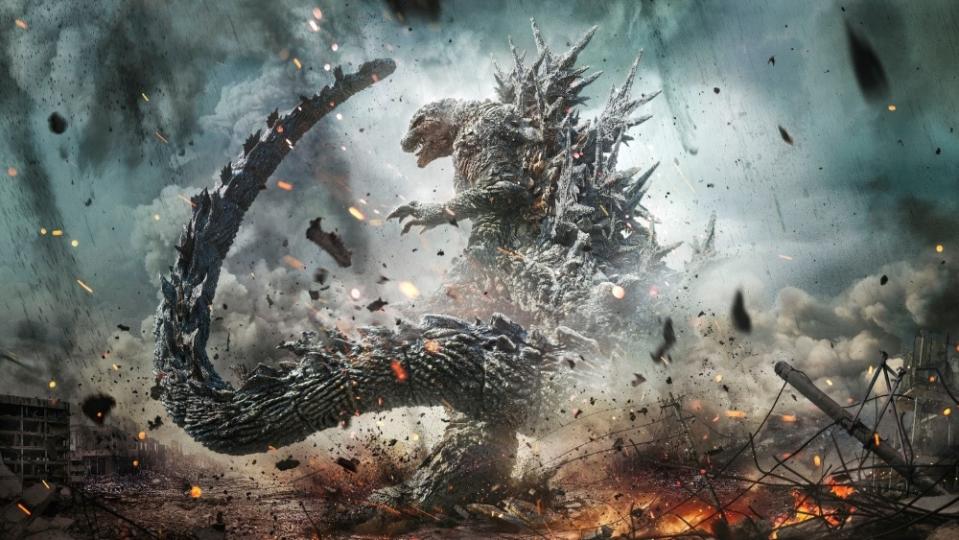
It’s difficult to believe that after nearly 70 years, Japan’s reigning radioactive reptile still has the power to surprise moviegoers. And yet that’s exactly what this instant kaiju classic did when it was released to critical acclaim and commercial success. The film’s powerful human drama is what sets “Godzilla Minus One” apart from all other entries in the series. Taking place between 1945 and 1947, the movie’s primary focus is on the emotional trauma suffered by Japan in the aftermath of WWII. Tackling real-world issues like PTSD and survivors guilt, the film paints a moving portrait of a nation overwhelmed by grief. As for Godzilla, the version seen here is like annihilation personified. An unnatural disaster on two bulky legs, this Godzilla is brought vividly to life by director Takashi Yamazaki and his Oscar-winning team of visual effects artists. Put simply, this is a film for grown-ups that just happens to co-star a 165-foot tall atomic-powered monster.
1. Godzilla (1954)
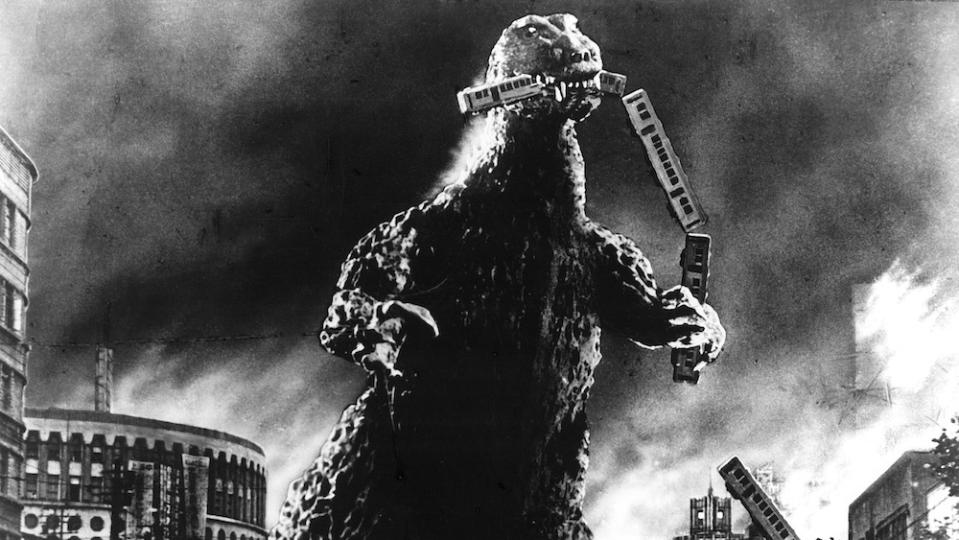
If Godzilla is indeed the king of the monsters, then director Ishiro Honda’s elegiac masterwork is the king of the monster movies. Like a dark fairy tale shot in vérité style by a documentary news crew, this disquieting metaphor for the horrors inflicted on Hiroshima continues to resonate around the world more than six decades after its release. Rendered in stark black and white, and filled with moving performances by legendary actors like Takashi Shimura and Akihiko Hirata, “Godzilla” is a bleak and austere work of art that stands alone in the annals of cinema.
Best of Variety


